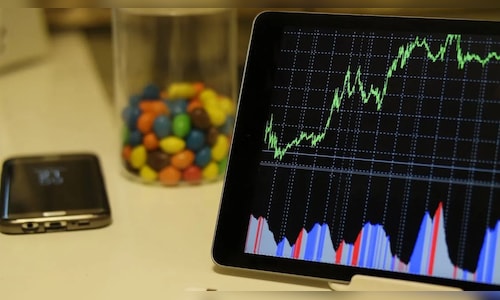
According to Bloomberg data, since November 5, stocks in South Korea have plunged as much as 8%, followed by Hong Kong (5.4%), France (5.1%), Switzerland (4.9%) and the UK, which is down by 4.4% during the same period. In contrast, stocks listed in the Mainland have outperformed India and other European markets such as France, Switzerland and Germany.
The US market, which contributes more than half to the world’s equity market, has gained 3.2% after Donald Trump’s win as the next US President elect. China, the second largest equity market in the world, accounts for 8.3% to the total market capitalisation, whereas Korea’s contribution stands at 1.3%.
However, Hong Kong, where some of China’s most influential and innovative firms are listed, is down by 5.4% post Trump’s win. It is to be noted that the Hong Kong market often mirrors the investor sentiment, considering the prevailing restriction placed by Chinese regulators on anything from short selling to verbal warnings and direct intervention by state funds.
Nevertheless, market participants are of the view that the newly-elected Trump administration is unlikely to slap 60% tariffs on Chinese imports as promised during his Presidential campaign. Christopher Wood of Jefferies remains sceptical regarding the same, and he believes that if the US does so, it’s going to increase the cost of goods for many Americans. “It’s going to be much lower, maybe even softer as compared to Trump 1.0.” said Christopher Wood, Global Head of Equity Strategy at Jefferies. According to Wood, these are part of his negotiation tactics to attract overseas companies to shift their production to the US.
Change in market cap since November 5
| Country | % Change |
| South Korea | -7.70% |
| Hong Kong | -5.39% |
| France | -5.13% |
| Switzerland | -4.88% |
| United Kingdom | -4.42% |
| India | -3.85% |
| Germany | -3.45% |
| China | -3.30% |
| Taiwan | -3.14% |
| Japan | -0.26% |
| Canada | 0.24% |
| United States | 3.21% |
Source: Bloomberg
Moreover, with Elon Musk becoming a part of the new administration, the possibility of such a high tariff on China is very unlikely given the country contributes almost a quarter to Tesla’s total revenue.
Meanwhile, India’s equity market continues to slide for the seventh day on Monday, triggered by lower-than expected second quarter earnings and stretched valuations. Companies have witnessed a raft of downgrades post September quarter numbers, resulting in a drop in valuation multiples.
The Nifty50 currently trades at 19.6 times its one year forward earnings against 23x commanded in October 2021.
Further, after offloading more than $10 billion worth of shares in October, foreign portfolio investors (FPIs) have sold another $ 3 billion worth of Indian stocks in November.
Also Read: Is Grasim’s Birla Opus a key trigger behind the pain in Asian Paints?



